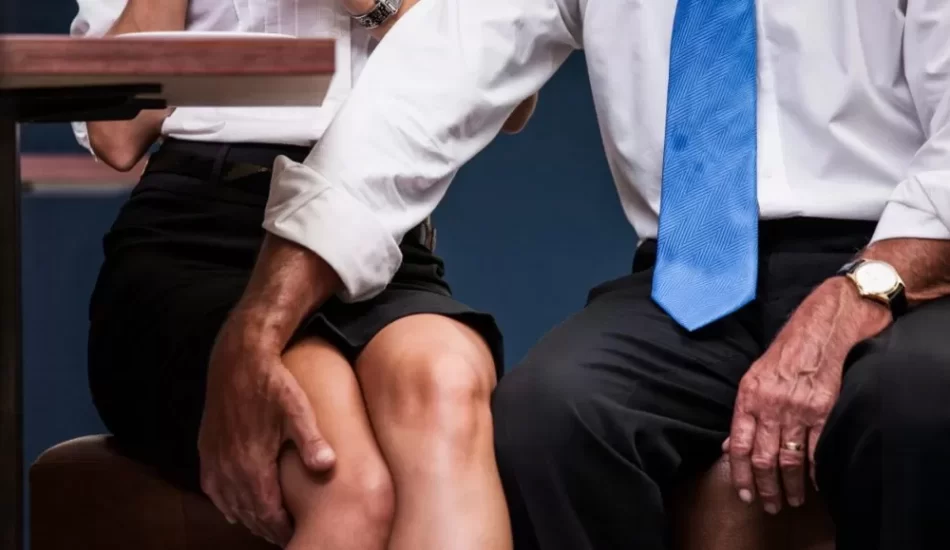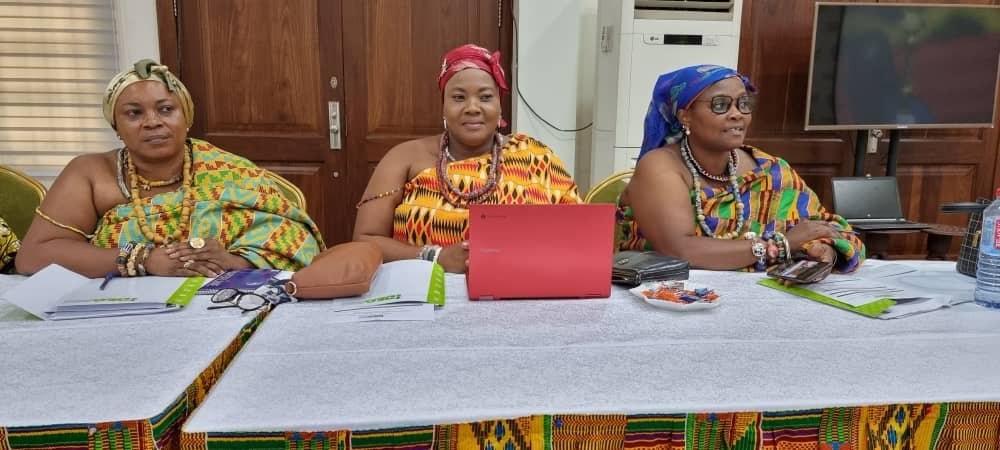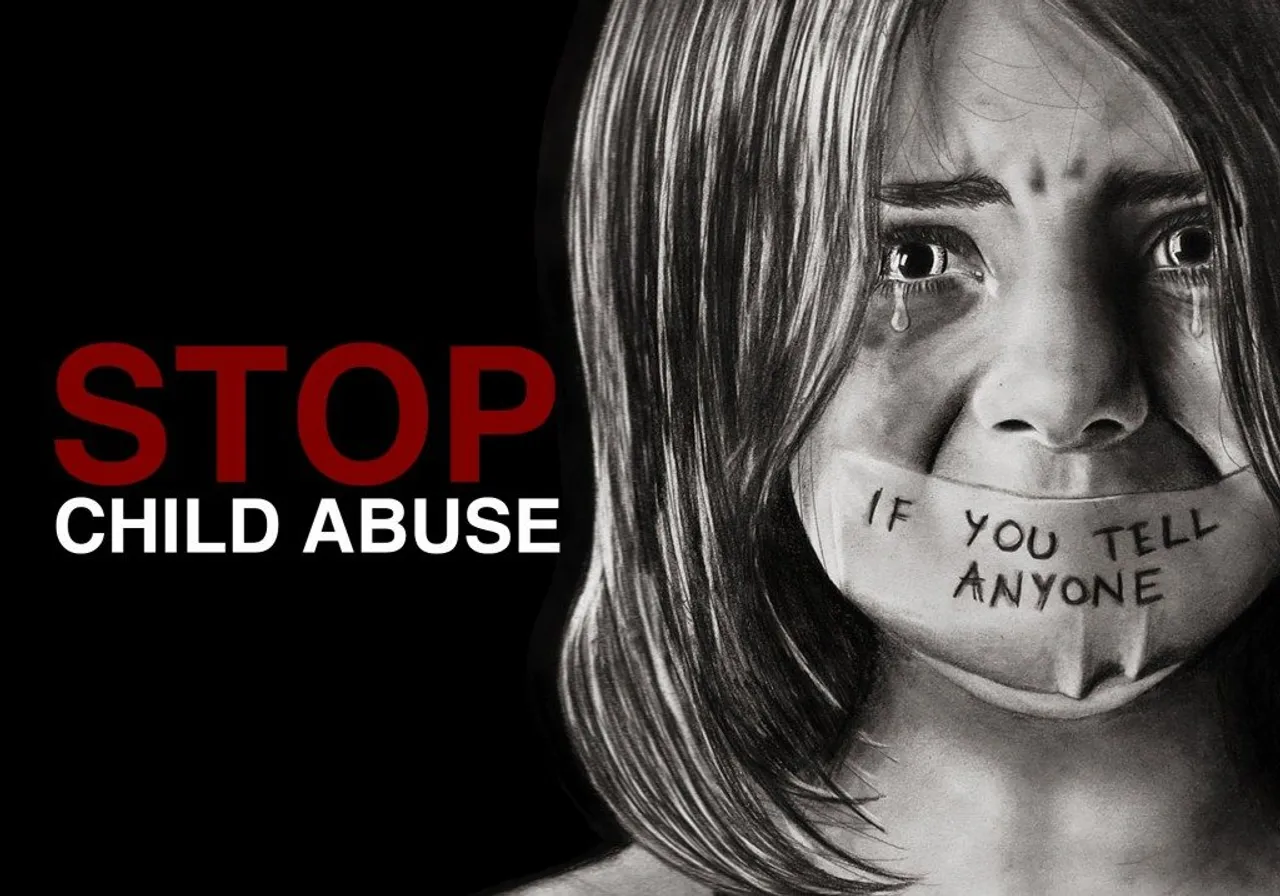Gender
Sexual Assault Awareness Month …A call to action

Her mother noticed she was not bubbly as she used to when she returned from school on Friday afternoon.
Dzidzor kept to herself throughout the rest of the day and refused to have lunch or dinner with the family.
Before her mother went to bed, she went to see her daughter in her room only to see her soaked in her own tears and could not get out as she tried to help her out of bed.
Dzidzor’s mother called for help to lift her 13-year old daughter out of bed. And as her oldest son run into the room, Dzidzor passed out.
As they lifted her from the bed, they noticed she was soaked in blood.
Earlier on her way home, Dzidzor was ambushed and defiled by two of her seniors in school who had been making advances at her for the past four months.
Dzidzor’s story mirrors the plight victims of sexual assault go through and the need for parents, teachers, and non-governmental organisations to tackle the issue and its associated challenges heads on.
Globally the month of April is celebrated as the Sexual Assault Awareness Month (SAAM).
This year, the campaign would be marked on the theme ‘Together we act, united we change,’ and highlights the importance of working together to address and prevent sexual abuse, assault, and harassment.
Sexual Assault Awareness Month is an opportunity to listen to and honour survivors in our community and show those impacted by sexual violence that they are not alone.
The World Health Organisation (WHO) defines sexual violence as any sexual act, attempt to obtain a sexual act, unwanted sexual comments or advances, or acts to traffic or otherwise directed against a person’s sexuality using coercion, by any person regardless of their relationship to the victim, in any.
According to the Ghana Statistical Service (GSS), one in seven aged between 15-49 have experience sexual violence at some point in their lives according to the 2022 Ghana Demographic and Health Survey (GDHS).
The report states that six per cent of women aged 15 and 49 experienced sexual violence within 12 months preceding the survey.
This finding is an indication of prevalence of human right abuse in the country which requires stringent measures to address.
It also mentioned that sexual violence can be experienced by every woman aged 15-49 years irrespective of one’s marital status; the proportions however, vary across different categories.
Over 53 per cent of women and over 29 per cent of men reported experiencing sexual violence (Chen, et al., 2023).
Sexual assault or violence impacts everyone and anyone can be a victim of sexual violence. People who commit such atrocities exist in communities.
Sexual violence is an umbrella term that includes any type of unwanted sexual contact including sexual abuse, assault, harassment, unwanted sexual contact or touching, exploitation and trafficking, exposing one’s genitals or naked body to other without consent, nonconsensual image sharing or coercion, words and actions of sexual nature against a person’s will and without their consent.
Sexual assault or violence can stem out of privilege and power, tolerance of abuse, unsatisfied sexual desires, patriarchal norms and corruption.
Everyone in each community, whether at the workplace, school, deserves to live in safe and supportive environments where they are treated with respect.
In tackling assault or violence, education is the first step to action. In education, empowering various communities to be part of the solution is key.
The Ghanaian Times newspaper reported that the Civic Education Officer of the National Commission for Civic Education (NCCE), Mrs Phebemary Makafui Adodo-Samani, has proposed the adoption of April as Sexual Violence Awareness Month in Ghana.
This according to her would help educate the public, especially children, about the devastating effects of sexual violence and promote a culture of consent.
“As the world observes April as Sexual Violence Awareness Month, I will urge Ghana to also adopt this international event as a national awareness campaign to raise awareness about sexual violence and abuse just like we do in October to raise awareness about Breast Cancer and it working positively,” she said.
Mrs Adodo-Samani made the call at a seminar organised by the Accra Technical University in partnership with “I Believe Global” in Accra last Friday to mark the International Women’s Day.
In March 2018, United Nations Children’s Fund (UNICEF) Executive Director Henrietta Fore says it was committed to tackling all forms of sexual misconduct and sexual violence.
According to her, it continuously strives to tackle sexual exploitation and abuse and to improve the safety of the people, especially in settings where the risk of sexual exploitation and abuse rises.
She said UNICEF’s goal was always to be zero victims of sexual exploitation and abuse but said it was harder to address an unreported case than a reported case.
Ms Fore said it takes measures to protect those who report, to assist victims, to address the individual accountability of perpetrators, and to learn from mistakes.
“We have enhanced our investigation process to ensure that reports of sexual misconduct can be promptly investigated, even if the victim does not file a formal complaint,” she said.
By Jemima Esinam Kuatsinu
Gender
Beyond the cross: The role of women in Easter story

Easter is here again and Christians all over the world are observing the death and resurrection of Jesus Christ, as described in the New Testament.
It also marks the end of the Lent season and is also a time of joy and celebration for many Christians worldwide.
It is therefore not surprising to see Christians organise conventions, crusades and picnics to commemorate the special occasion.
On Good Friday which is expected to be commemorated tomorrow, a section of Christians would wear black to signify the crucifixion of Jesus Christ.
Predictably, it would be all white on Sunday which is the resurrection to signify victory over death.
In this article, The Spectator would look at the role women played in the entire story about the death, burial and resurrection of Jesus Christ.
During the ministry of Jesus Christ, women such as Mary Magdalene, Mary, Martha, Joanna and Sussana played significant roles. They were devoted followers, witnesses, and provided financial support to Him, during his ministry.
At the cross, several women were present during Jesus’ crucifixion, including Mary Magdalene, Mary the mother of James, Salome, and Mary, the mother of Jesus.
Matthew 27:56 mentions that “many women were there beholding afar off, which followed Jesus from Galilee, ministering unto him.” Luke 23:27-31 and Mark 15:40-41 also refer to ‘many other women’ being present.
Women played significant roles in the events surrounding Jesus’ death, burial, and resurrection.
In ancient Jewish culture, women’s testimony was often viewed with skepticism or dismissed altogether. A Jewish historian Josephus noted that women’s testimony was not admissible due to perceived flaws in their character.
This societal bias is evident in the Gospel accounts, where women’s roles as witnesses to the resurrection of Jesus were crucial, yet potentially problematic given the cultural context.
The resurrection account is built on the testimony of women and it best explains the central role of women in the Easter story.
In each of the four gospels of the Bible, (Matthew, Mark, Luke and, John), the women- Mary, Mary Magdalene, were the first to see the risen Jesus. It is their testimony that sends Peter and John to the empty tomb.
The role of women in the death and resurrection of Jesus Christ cannot be downplayed, bringing to light how women can be agents of change and transformation in the face of adversity.
Again, the role of these women in the events surrounding the suffering, death and resurrection is a reminder of the contributions that women can make to the life of the church and recognise the important roles women play in various aspects of life including politics, education and business.
The role of women

In Mark 14: 1-9, it was a woman who anointed the head of Jesus in preparation for his burial. In Matthew 27: 19, a woman urged her husband (Pontius Pilate) to stand against the power of the mob and spare an innocent man’s life.
Again, women were the ones that stood at the foot of the cross as Jesus breathed his last in Matthew 28:1, Mark 16:1-6 and Luke 23:55-56 where women were the first to arrive at the tomb to anoint the body of Jesus.
Also they were the first to be entrusted with taking the good news of Christ’s resurrection to the disciples and were the first to witness the resurrection as captured in Matt 28: 18 -20.
Significance
According to Christianity.com, the role of these women speaks volumes of how much God loved, trusted and rewarded the women. It also speaks to the many ways God is willing, eager and able to use both men and women to advance his Kingdom.
In April 2023, a research paper on ‘The role of women in the events surrounding the suffering, death, and resurrection of Jesus Christ,’ states that women can be agents of change in a society that oppresses and marginalises them.
It said the fact that women played a key role in the events surrounding the suffering, death, and resurrection of Jesus was an example of how they can effect change and transformation.
“The role of women in the events surrounding the suffering, death, and resurrection of Jesus Christ can have significant implications for national development.
One way in which this can be done is by recognisng and valuing the contributions that women make to society,” it said.
The paper said just as Jesus valued and respected women in his ministry, it is important for society to recognise the important role that women play in all areas of life, including politics, business, and education, adding that this can be achieved through policies that promote gender equality, equal opportunities, and the protection of women’s rights.
Just as the women in the Gospels were leaders and co-workers in the early Christian community, women today have the potential to be leaders in their communities, contributing to the growth and development of their nations.
Providing education and training opportunities for women can help them develop their skills and abilities, and empower them to take on leadership roles in society.
It added that the role of women in the events surrounding the Easter story provides important lessons that can be applied to national development by recognising and valuing the contributions of women, promoting their education and empowerment, and encouraging their participation in all areas of life.
Society can work towards promoting gender equality and uplifting women in all areas of society. This is a powerful reminder that God can use even the most marginalised and overlooked members of society to bring about his purposes.
By Esinam Jemima Kuatsinu
Gender
Betrayal of trust: Understanding effects of abuse and assault on children

Mostly sexually abused victims are often abused by people they trust which can include family members, friends, acquaintances, or authority figures.
This makes it difficult for victims and the guardians to report the abuse or seek help as they may feel a sense of loyalty or obligation to the perpetrator.
Due to this sense of loyalty, many of such cases are either not reported to the police and are sometimes either settled at home with a little token as compensation or without it at all.
A typical case currently is that of Ransford, a 16-year-old footballer who is said to have been allegedly sodomised by the coach of his club, Siano Soccer Academy.
Unfortunately, Ransford died at the Komfo Anokye Teaching Hospital, after battling with severe illness which was as a result of the sexual abuse he had endured for the past three years.
Many of such cases occur and often remain hidden because of the person who committed the crime and also because victims do not believe the justice system.
Abuse of trust can have profound impact on victims, making them feel vulnerable, betrayed and powerless.
The Domestic Violence and Victims Support Unit (DOVVSU) exist to provide free services to members of the public; protect the rights of the vulnerable against all forms of abuse be it physical, sexual, emotional and psychological, socio-economic, or harmful cultural practices; establish an effective database for crime detection, prevention and prosecution.
The Unit also refer victims for medical services and specialised help to clinical psychologists; social workers from the Department of Social Welfare and counsellors attached to the Unit.
In February 2015, the government of Ghana approved its new Child and Family Welfare Policy which aims at preventing and protecting children from all forms of violence, abuse, neglect and exploitation.
The effects of sexual assault on children can have devastating, long-lasting and profound effects on the lives of victims and their loved ones.
These people abuse the trust to sexually exploit or assault minors. They groom, coerce, and deceive children and teens into committing sexual acts in person or online.
A report by the Ghana Statistical Service 2011 states that over 90 per cent of children report having experienced physical violence, both at home and in the school environment.
A paper on culture and nondisclosure of child sexual abuse in Ghana on behalf of the American Bar Foundation and authored by Kofi E. Boakye said the concept of patriarchy and its relation to rape and violence against women in general was given greater prominence.
It said further to the concept of patriarchy, and its excesses are false beliefs about (child) sexual abuse and its victims, also likely to negatively influence the disclosure of child abuse.
According to the paper, culture remains a crucial site for the construction and perpetuation of these misconceptions or false beliefs.
United Nations Childrens Fund (UNICEF)
According to the UNICEF the financial burden of child abuse in Ghana was estimated at more than USD 200 million per year or one per cent of Ghana’s GDP.
The estimated total number of children who have been physically or emotionally abused was noted at 3.4 million in Ghana.
According to UNICEF, issues that impede the prevention of violence against children include social norms, accepting and promoting the use of violence in schools, homes and other institutions as an effective way to manage the behaviour of children, laws permitting the use of “reasonable” punishment by parents against children.
Also insufficient allocation of resources to prevention and response programmes in all spheres, inadequate capacity of key government actors – including social workers, teachers, police, prosecution and courts – to prevent and respond
Other factors include lack of timely and continuous specialised management of child protection cases of violence, cultural practices inhibiting the ability of survivors of violence to come forward, and poor quality of care given to survivors of violence, which may put them to greater risk.
In 2015, UNICEF and its partners produced a Child Protection Community Facilitation Manual and toolkits containing games and activities that are designed to stimulate community reflection on child protection issues and encourage local action.
In November 2017, UNICEF with support from the Government of Ghana launched the ‘Ghanaians Against Child Abuse’ (GACA) campaign, which runs in line with the government’s Child and Family Welfare and Justice for Children policies that are helping to strengthen the child protection system in Ghana.
The campaign is using various channels including social media, traditional media, mobile theatre to create awareness on child abuse issues whilst mobilising national support to provide a safe and protective environment for children.
It is anticipated that this movement will help change the narrative of how Ghanaians protect their children.
Breaking the silence around sexual abuse and assault is crucial to preventing crimes and supporting victims.
Talking about assault has its advantages although it might be difficult for the victims to identify them.
Breaking the silence, victims talking about their experience, sharing their suffering, understanding what happened to them and the impacts on their lives and establishing relationships based on trust can contribute to giving them tools to regain their confidence.
Also education plays a crucial role in preventing any form of child sexual abuse when a child is educated on the effects of sexual abuse it arms then as well as their parents, trusted adults and educators with crucial information to keep kids safe either at home or online.
It empowers the children and their guardians with the knowledge and tools they need to protect themselves.
Also, the fight against child abuse or assault transcends borders and requires collaboration between law enforcement, non-governmental organisations, parents and educators, and the public at large.
There is therefore the need for partnerships to amplify the impact of abuse and assault on children and need for a coordinated response to fight a crime of child sexual abuse.







